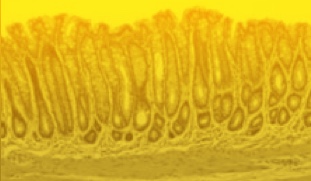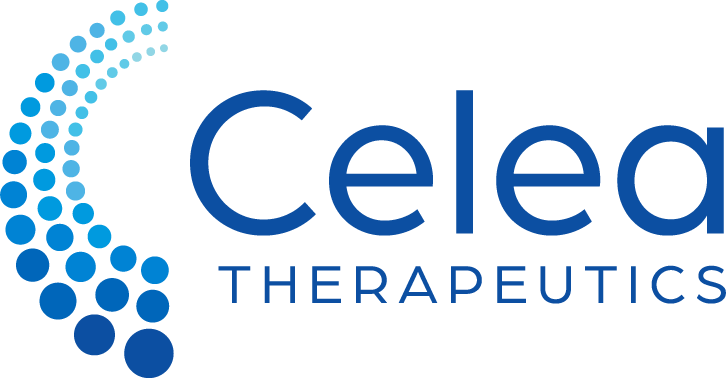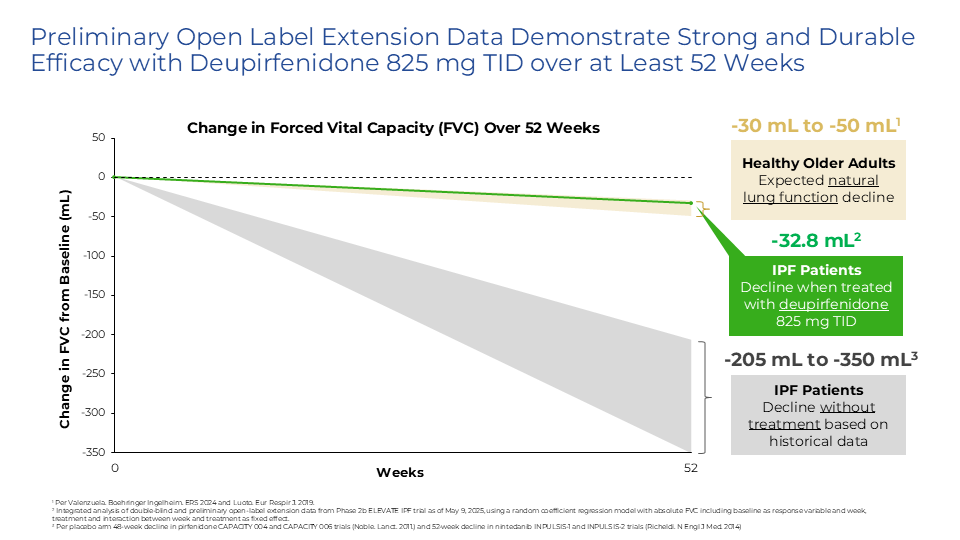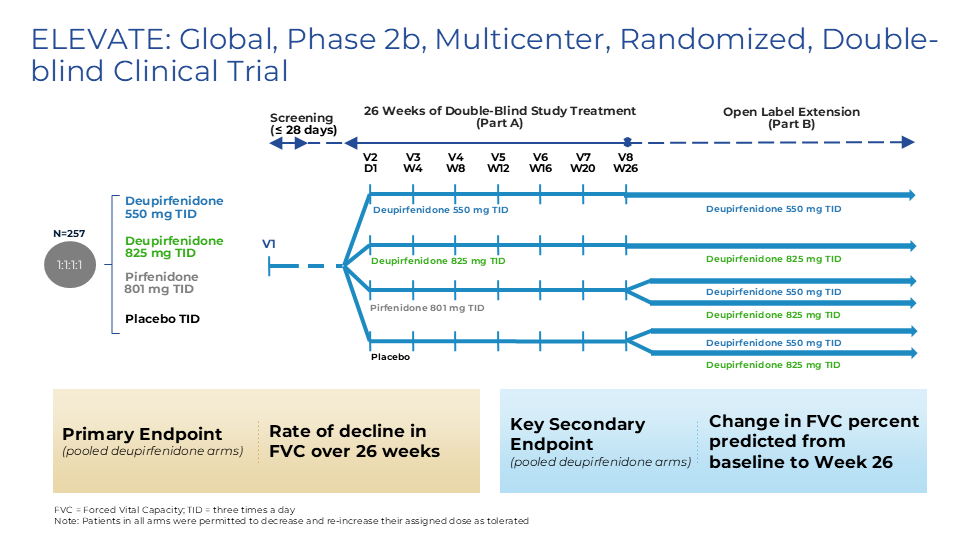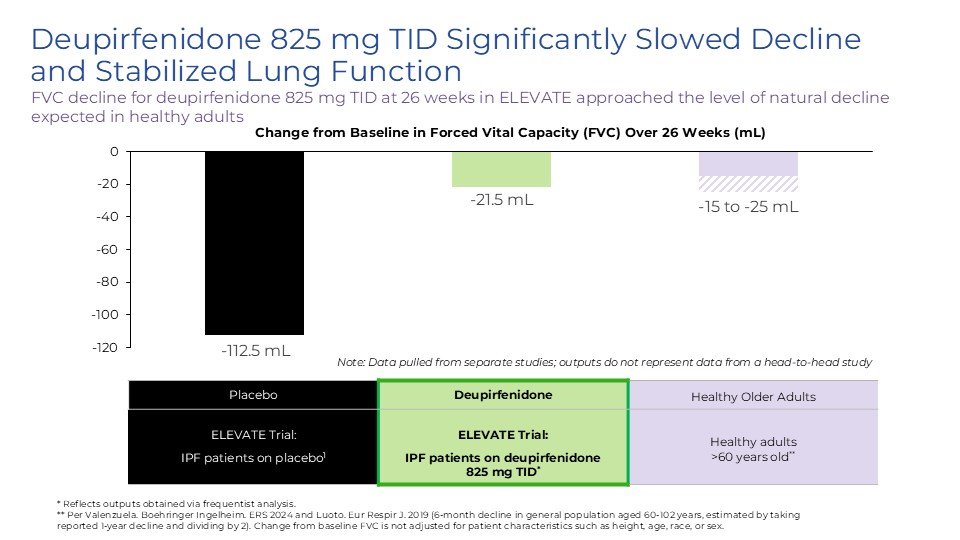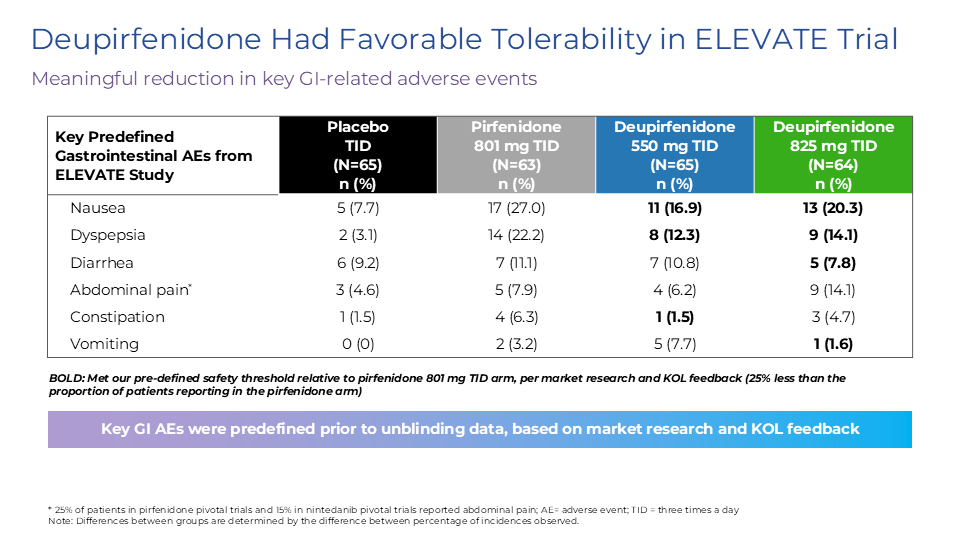
See the press release HERE.
Conditions involving inflammation and fibrosis, including idiopathic pulmonary fibrosis
Deupirfenidone (LYT-100) is being developed at PureTech as a potential new standard of care (SOC) for the treatment of idiopathic pulmonary fibrosis (IPF), a progressive and fatal lung disease estimated to affect over 230,000 people across the U.S. and EU52. Only about 25% of IPF patients have ever been treated with either FDA-approved therapeutic (pirfenidone and nintedanib)3, yet combined sales of these medications in 2022 were more than $4 billion4, representing a significant market opportunity in IPF and other fibrotic lung diseases.
Despite achieving blockbuster status, the current SOC treatments only modestly slow lung function decline, as their effectiveness is limited by poor tolerability at higher doses. This results in suboptimal efficacy, reduced patient uptake, and poor adherence—all due to a tolerability ceiling that prevents dosing levels that could significantly improve patient outcomes.
Our studies have shown that deupirfenidone may overcome these limitations and – to our knowledge – is the only investigational therapeutic for IPF that has demonstrated the potential to stabilize lung function decline over at least 26 weeks while maintaining safety and tolerability. Beyond IPF, deupirfenidone could also address multiple underserved fibrotic diseases, including progressive fibrosing interstitial lung diseases (ILDs) and other fibrotic conditions.
